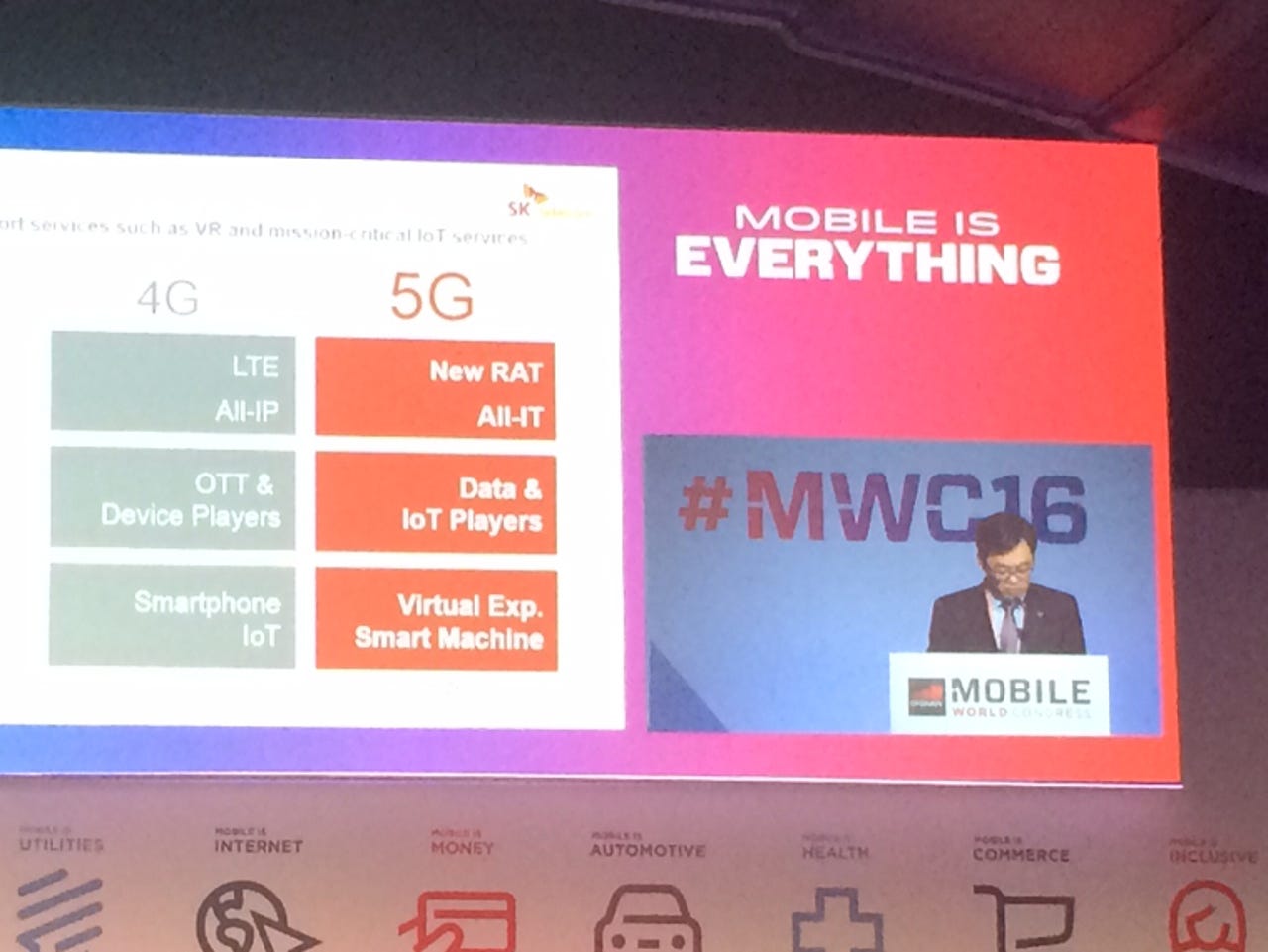5G may be the future of mobile: But a couple of things have to happen first

Unsurprisingly, 5G advocates have been out in force at this year's Mobile World Congress.
It seems 5G has become a sort of Promised Land for a better mobile experience: greater speeds, lower latency, and lower costs.
So, it's hardly surprising that the 5G zealots have been out in force at Mobile World Congress, held in a Barcelona hit by its own mobility problems, due to a metro workers' strike.
Korea's SK Telecom has already carried out 5G radio demonstrations and is currently building 5G testbeds through its Virtual Experience Center. Unsurprisingly, its CTO, Alex Jinsung Choi, argued that, "5G will dramatically change people's life."
Vodafone CEO Vittorio Colao echoed that sentiment by noting the mobile tech will dramatically accelerate what he called "the gigabit society", which would happen when networks provide very high speeds and very low latency as well as a strong level of security.
The trouble is this next-gen mobile technology is still not ready for use, even though it may well be by 2020. In the meantime, operators and developers have to maintain a high level of expectation about what 5G will bring.
For example, Qualcomm Technologies executive vice president and CTO Matt Grob said, "5G is much more than just faster" as it will enable "a new type of service we haven't seen yet". These services will merge the real and the virtual world, mixing different types of traffic and unifying spectrum types for best performance.
Deutsche Telekom CTO Bruno Jacobfeuerborn said, "5G is not about another connectivity; it's about managing consumers' digital life", while Huawei European Research Institute VP Walter Weigel insisted, "We will see a revolution".
However, elsewhere at the conference, Huawei deputy chairman and CEO Guo Ping made it clear that a number of things remain to be accomplished before the introduction of 5G.
By 2025, there will be 100 billion connections globally. Yet, as of now, 99 percent of equipment is still unconnected. So, the first step that must happen, Ping said, is to "increase connectivity". This development will be possible with 4.5G, which is the evolution of the standard 4G LTE, he said.
Mobile world congress 2016
Last year, leading Hong Kong telecoms service provider HKT and Huawei demonstrated at the Global Mobile Broadband Forum the first 4.5G 1Gbps mobile network featuring dual HD and narrow-band IoT, which focuses on indoor coverage, low costs, long battery life, and a large number of devices.
Ping also pointed out the need to shift from a supply-driven business model to a demand-driven one, and the necessity to support a software-defined architecture, spawned from software-defined networking and introducing a certain level of virtualization between software producers and consumers.
MWC in pictures: The top smartphones, wearables, and tablets
"Before 5G, we need to better understand the needs of verticals, support them during their integration, thus driving forward a digital revolution," he said. "It's important to act rather than wait for a new technology."
Oddly enough, Mark Zuckerberg seemed to agree with him. In his keynote speech, the Facebook founder lowered the hype around 5G by underlining that while we are talking about next-gen, there are still four billion non-connected users in the world.
"Our goal is really help people get on the internet," he said, before turning his attention to the importance of video and virtual reality as an opportunity to "give people better ways to express what they care about" and artificial intelligence. It was one of the few sessions where attendees didn't have their heads bent down to check their smartphones.
